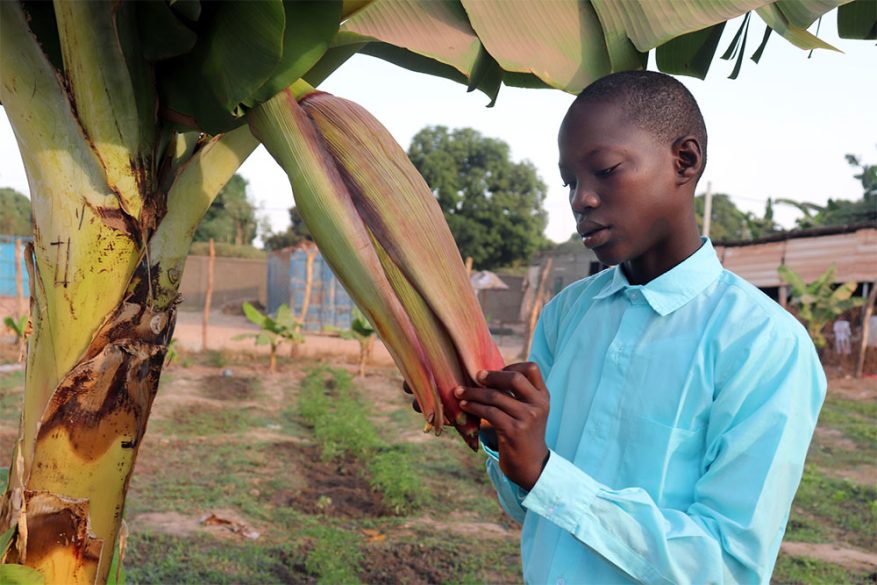Gambia farm staff work with Waitrose to transform their communities
Off a main road in The Gambia, hundreds of children in crisp green uniforms file through the gates of their school.
The three-storey building was built in 2016 on land donated by Radville Farm – one of the country’s largest fruit and vegetable exporters – as part of an ongoing partnership with the Waitrose Foundation.
Before the land donation, thousands of children in the local area were forced to travel long distances to other districts to gain an education.
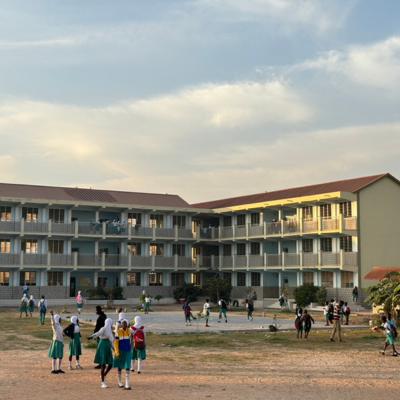
Ismail is a PE teacher at a school in The Gambia that is supported by Radville Farm and the Waitrose Foundation.
“The school population is growing rapidly,” said Ismaila, the school’s PE teacher. “At the start, there were fewer than 1,000 pupils but now we have more than 3,000. Attendance is good. We operate two shifts – half of the pupils attend in the morning and the rest in the afternoon.”
Life in The Gambia is hard. The country remains one of the world’s poorest - languishing 174th of 190 on the Human Development Index – and almost half of young people are not in education, employment, or training.
While school attendance is improving, the quality of education and school facilities varies.
Self Help Africa/United Purpose works with Radville Farm and three other farms across neighbouring Senegal, supporting the community-led projects funded by Waitrose Foundation. When customers buy fresh produce from Waitrose that has been sourced from these farms, two percent of the sale value is reinvested in projects that address challenges within their workers’ communities.
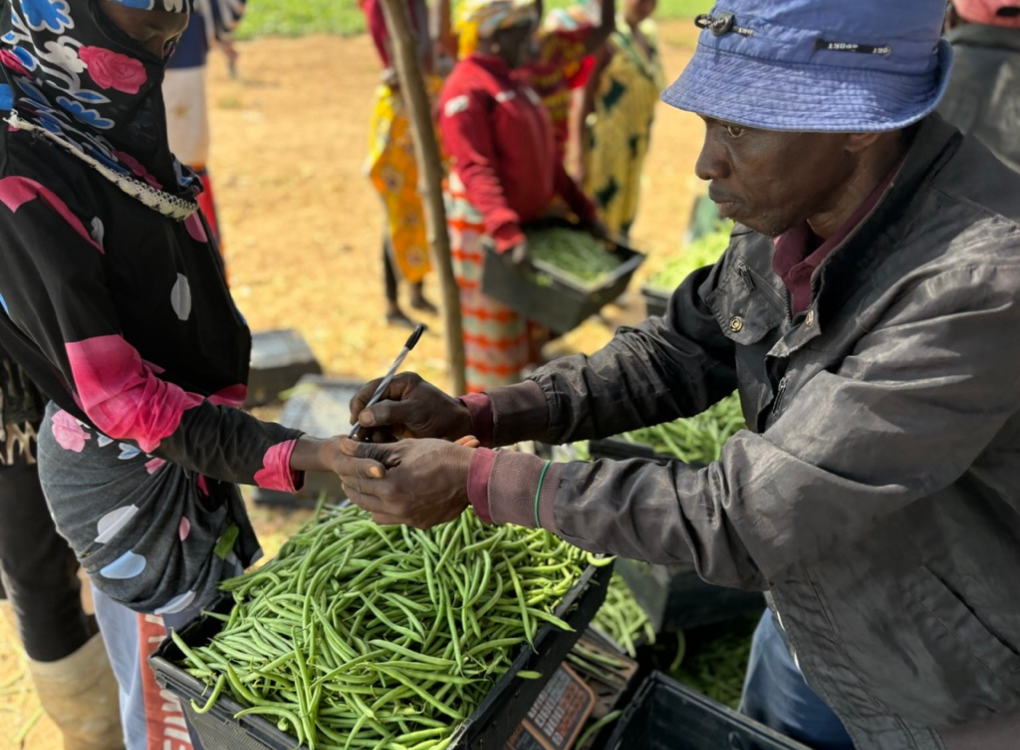
Freshly picked green beans are brought for weighing by workers in the fields at Radville Farm, The Gambia
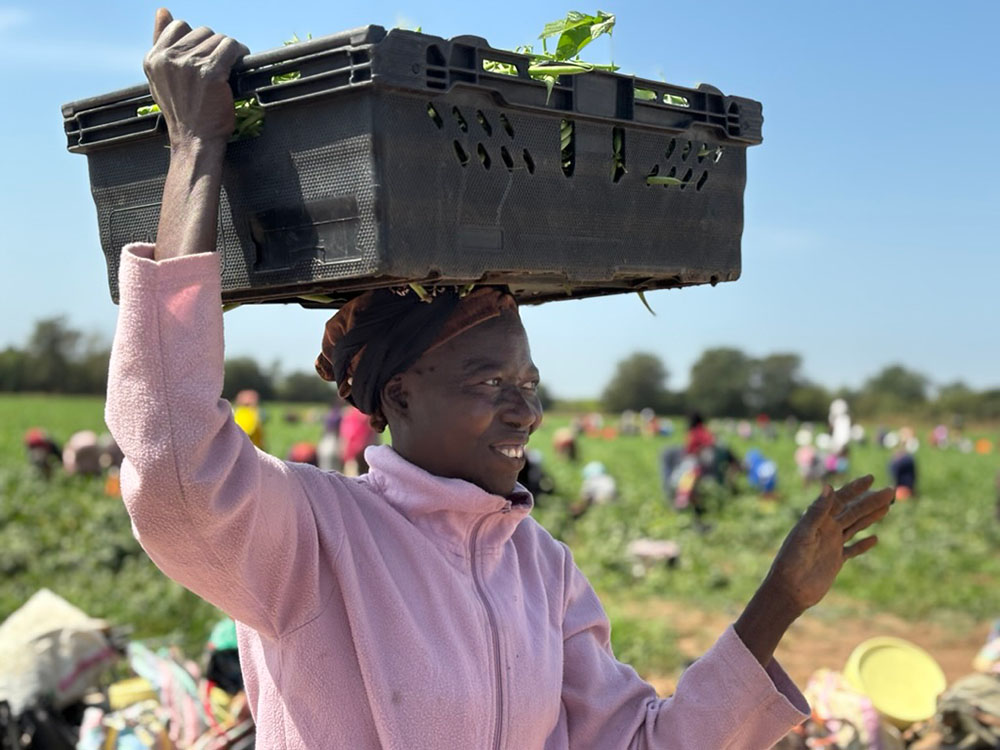
Sofie, a Radville Farm worker harvests green beans to support her six children.
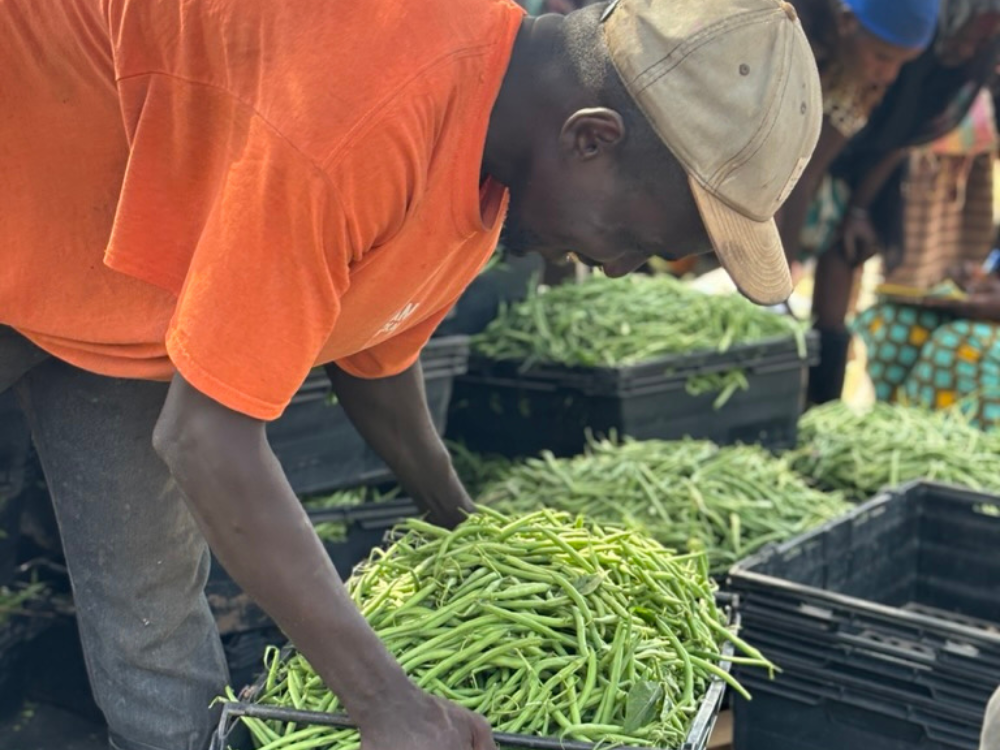
Freshly picked green beans are brought for weighing by workers in the fields at Radville Farm, The Gambia
These challenges are identified by the farm workers themselves, who are predominantly women, through ‘workers voice’ committees. The farm workers then suggest and co-design projects with Self Help Africa/United Purpose to tackle those challenges.
One priority identified was establishing a school in an urban area of The Gambia. Today, Radville Farm’s partnership with the Waitrose Foundation ensures pupils have daily access to clean, safe water, sanitation and electricity. A school garden allows pupils to take science lessons and learn about climate-smart agricultural practices, while a recently constructed multi-sports court, also funded by the Foundation, will soon have basketball, football and volleyball nets.
Pupil Hafeez said: “[Now that we have this school and these facilities], we can learn more than we did before. We could become a professional footballer, an artist, or even the president and help other people. We can come to the new playground and play before we go to our classroom and learn.”
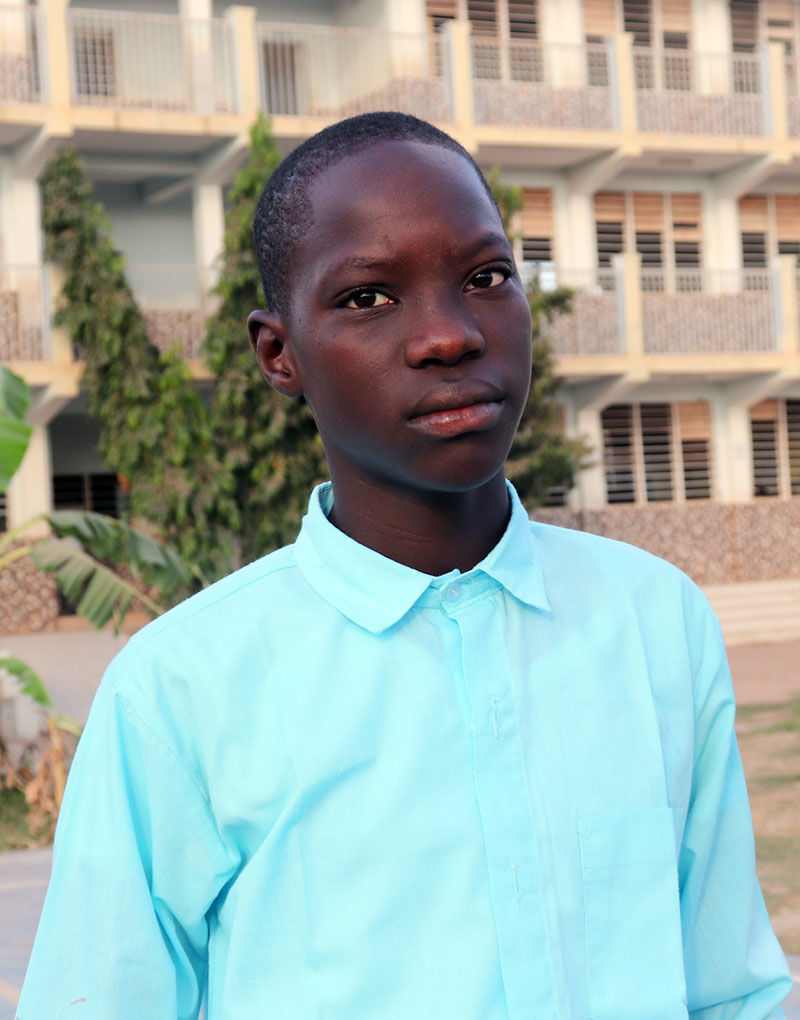
School is nice and it gives us knowledge. I like all of my subjects. I want to study hard so I can pass my exams and become an architect. I'd like to build big houses.
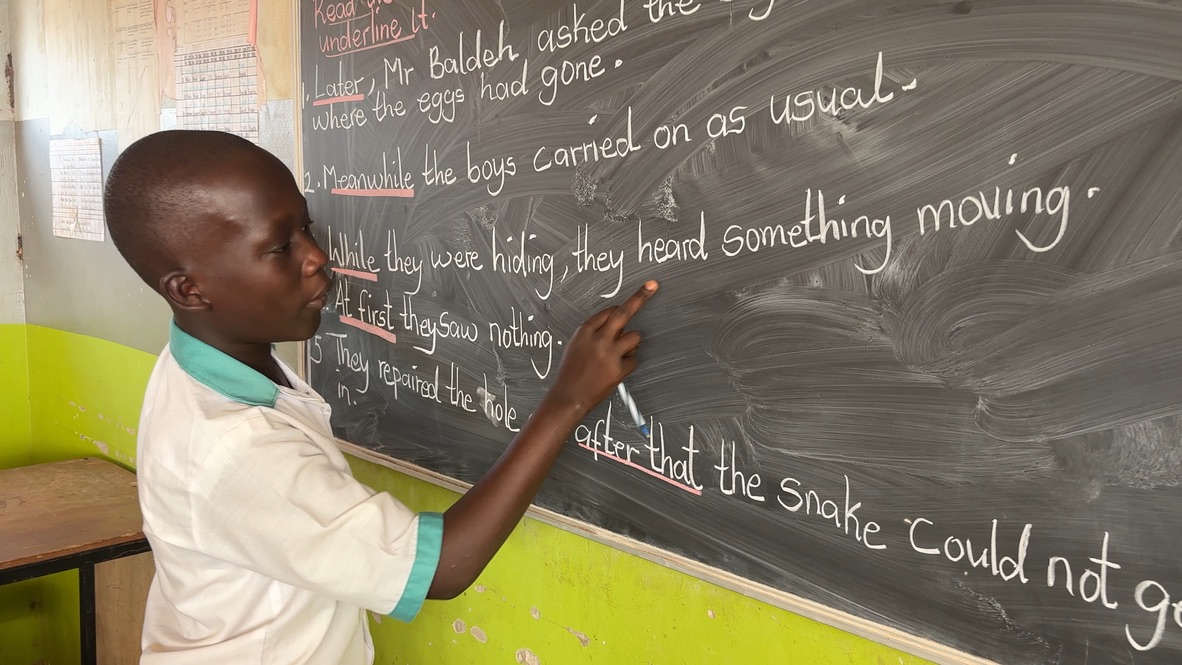
Hafeez reads English grammar from a blackboard in his classroom.
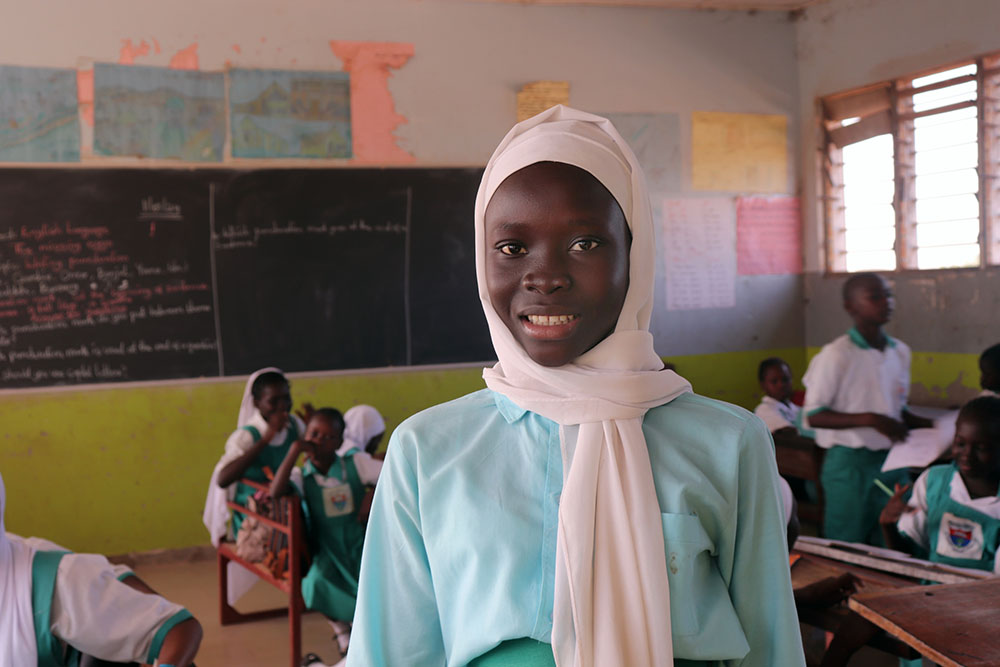
Haddy, is a pupil at the school, which benefits from a partnership between Radville Farm and the Waitrose Foundation, implemented by Self Help Africa/United Purpose.
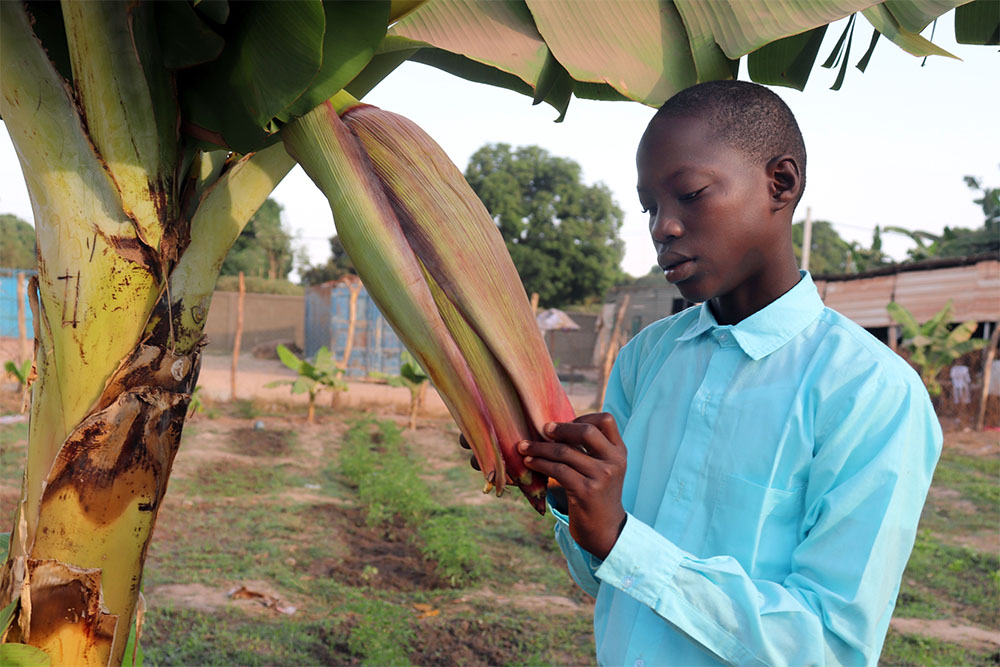
Sheriff, a pupil at the school, inspects the banana trees in the school garden. The school is supported by a partnership between Waitrose Foundation, Radville Farm and SHA/UP.
“Some of the kids have a hidden talent,” Mr Saidy added. “They are very good at different types of sport. [Having the multi-purpose sports facility] will help the teachers identify those children who are good at certain sports and help train them to become even better. We know how important sports can be.”
This school is just one of a series of projects funded across five communities in The Gambia by Radville Farm and the Waitrose Foundation. Others include street lighting to ensure workers can safely commute during dark mornings, the expansion of a savings and loans scheme run by and for the farm’s workers, and the connection of the farm’s groundwater supplies to a local community for more affordable and reliable water access. Community training sessions in climate-smart farming is also underway, and an agricultural apprenticeship programme will soon launch for unemployed young people.
Mamour Sey, human resources manager and programme representative at Radville Farm
For Mamour Sey, the human resources manager and one of the programme representatives at Radville Farm, supporting the farm workers’ communities remains a priority.
“We employ workers from across the country, but mainly the West Coast region,” he said. “Every tribe is represented here. The partnership with Waitrose Foundation is about simple representation. They [the workers] tell us what their needs are. It’s not always practical or possible to implement every suggestion put forward, but we do our best to find solutions to challenges that are identified.”
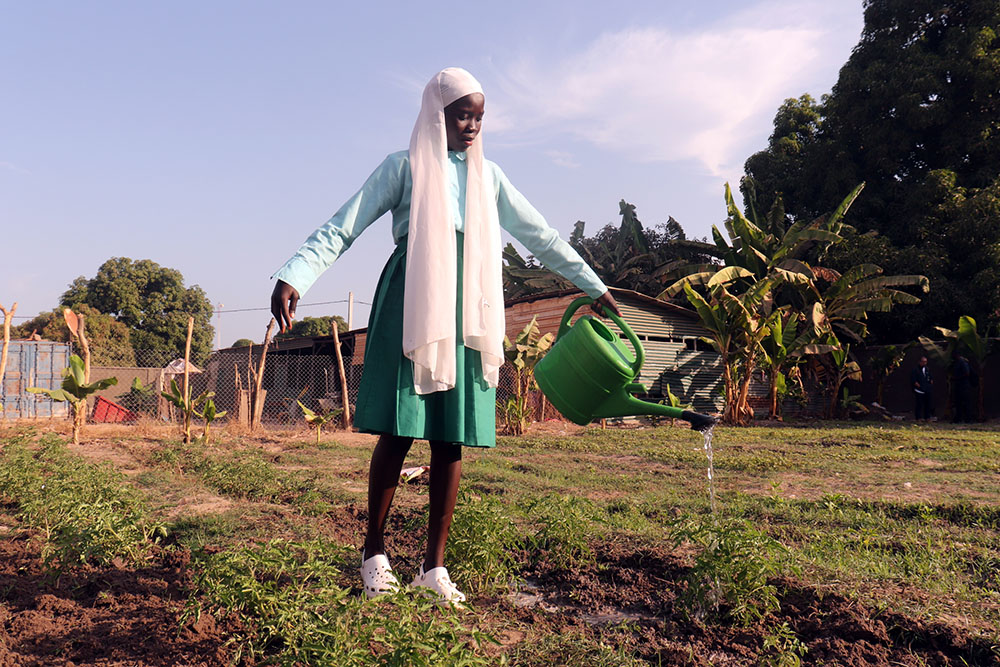
We use some fertilisers to grow crops in our school garden. I enjoy watering [it] in the morning and afternoon. We grow bananas, onions and other things too. We eat the things we grow and take some bananas home to the garden.


